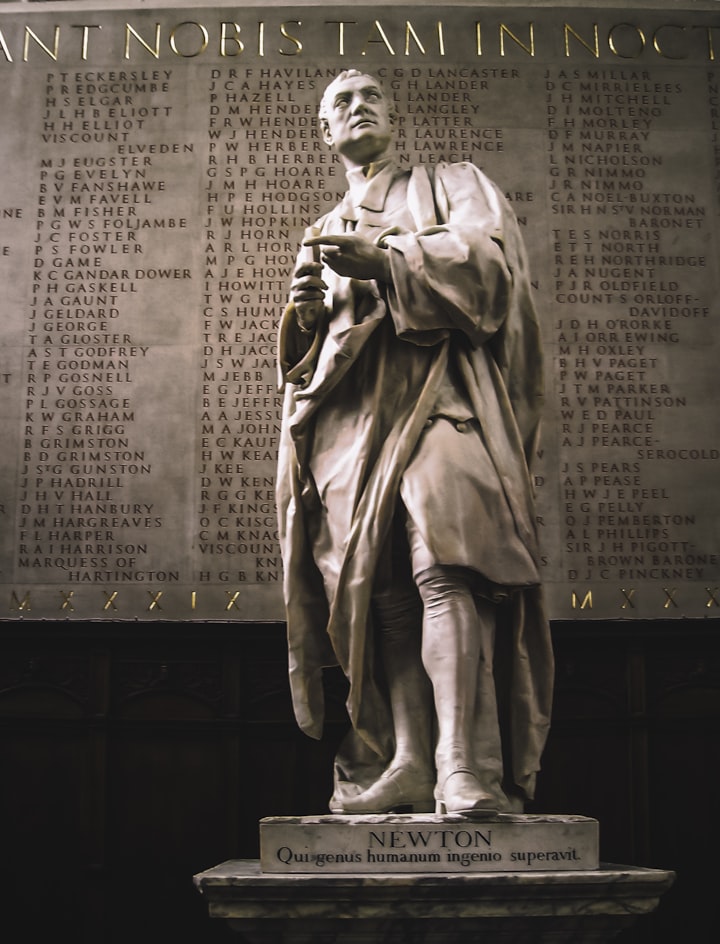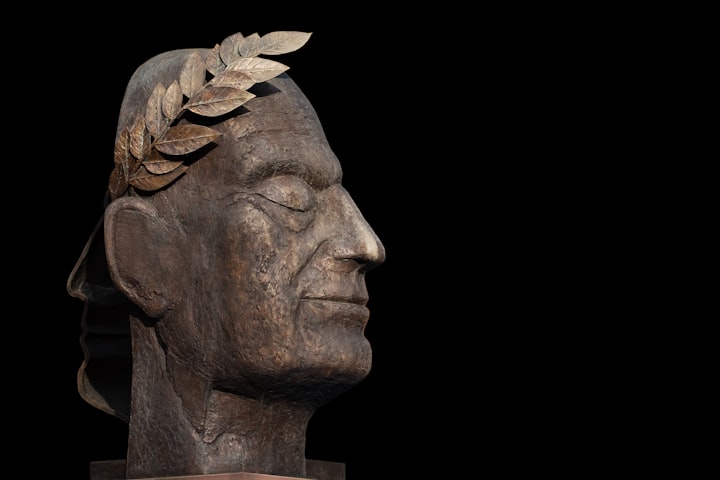
Isaac Newton was born in Woolsthorpe, Lincolnshire, England, on January 4, 1643, during the period of the English Civil War. His father, also named Isaac Newton, was a farmer who died three months before his birth. Newton's mother, Hannah Ayscough, remarried when he was three years old and left him to be raised by his grandmother. When his stepfather died, his mother returned to Woolsthorpe with her three children, including Newton.
Newton began his formal education at the King's School in Grantham, where he was an average student. However, he developed an early interest in mechanical devices and astronomy, building models of windmills and sundials, and observing the stars at night.
In 1661, at the age of 18, Newton enrolled at Trinity College, Cambridge, where he studied mathematics, physics, and astronomy. He quickly proved himself to be an exceptional student, and by the time he graduated in 1665, he had already made significant contributions to the field of mathematics.
During his time at Cambridge, Newton developed his theory of calculus, which allowed him to solve problems related to motion and change. Calculus is now regarded as one of the most important branches of mathematics and has been used in fields such as physics, engineering, economics, and medicine.
In 1665, while Newton was still a student, England was hit by a major outbreak of the bubonic plague. The university was forced to close, and Newton returned to his family's home in Woolsthorpe. It was during this period of isolation that he made some of his most significant discoveries.
One of Newton's most famous discoveries was his theory of universal gravitation, which he published in his book "Philosophiæ Naturalis Principia Mathematica" in 1687. The theory explained how objects with mass are attracted to each other, and it allowed scientists to calculate the movements of planets and other celestial bodies.
Another of Newton's significant discoveries was his laws of motion. These laws describe how objects move and interact with each other and are still widely used in physics and engineering today. Newton's work also paved the way for the development of classical mechanics and helped to establish physics as a separate field of study.
In addition to his contributions to science and mathematics, Newton was also an influential figure in the world of politics and economics. He served as a member of parliament and was appointed as the warden and later the master of the Royal Mint, where he oversaw the minting of coins and helped to reform England's monetary system.
Despite his many accomplishments, Newton was known for his eccentricities and difficult personality. He was often prone to bouts of depression and was known for his reclusive nature. He also had a strained relationship with his family and was known to hold grudges for years.
Newton died on March 31, 1727, at the age of 84. He is remembered as one of the greatest scientific minds of all time, and his contributions to science and technology continue to shape our world today. His work has influenced generations of scientists and engineers, and his theories have been used to design everything from airplanes to smartphones.
In conclusion, Isaac Newton was a remarkable figure who made significant contributions to the fields of science, mathematics, and engineering. His theories of calculus, universal gravitation, and laws of motion revolutionized our understanding of the natural world and helped to establish the foundations of modern science. Despite his eccentricities and difficult personality, Newton remains an enduring symbol of human ingenuity and achievement and a testament to the power of human curiosity and dedication.
About the Creator
Michael
This writer brings characters and worlds to life with vivid descriptions and compelling narratives. They transport readers to different times and places, leaving them longing for more.






Comments
There are no comments for this story
Be the first to respond and start the conversation.